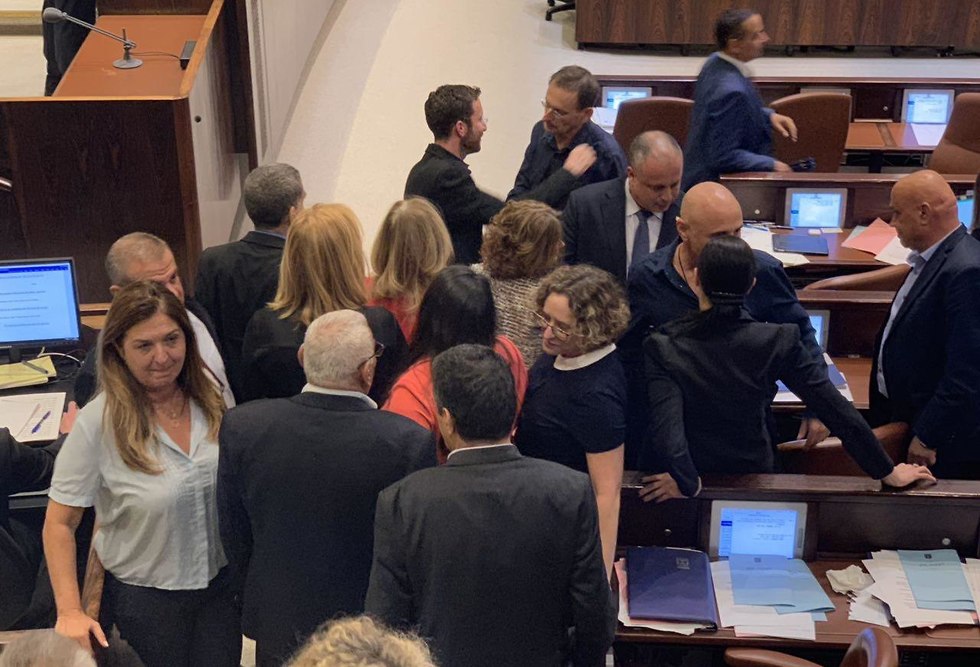

What do our ministers really do?
Op-ed: Ministers tend to claim their hands are tied and they have a limited ability to influence; they consider the legal system as their current obstacle; however, the truth is that efficient lawmakers succeed in promoting important issues, while the rest are just making up excuses.
At times, they point to laws that prevent them from doing their job and serving the public as they so desire. Sometimes it's those evil Finance Ministry clerks, those obscure messengers of the terrifying guild dubbed the "Treasury bureaucrats" who prevent them from fulfilling their duty.
The current rival preventing the ministers from demonstrating their ability to perform is the entire legal system—from the Supreme Court to the legal advisors in the government ministries.
The battle against the legal system is led by Justice Minister Ayelet Shaked, who went through the trouble of attending a political conference in New York, where she criticized our Supreme Court, of which she is in charge. Breaking the silence, so to speak.
All the criticism of politicians being restrained stems from their provocative, supreme claim: there is no governance. They are elected, but they can't do much because of the Supreme Court, the bureaucrats, the law, the media, the elites and because Mercury is in withdrawal.
Those are excuses. Think about slain Prime Minister Yitzhak Rabin, who was murdered 23 years ago. Even his strongest critics could not deny a simple fact: within merely three years, Rabin completely changed Israel and the Middle East. Apart from tremendous policy changes, Rabin changed the priorities in allocating budgets and resources to the education system, redesigning the security budget, and expelling hundreds of Hamas members, among other things.
Another example is former Prime Minister Ariel Sharon, who was effective. Sharon launched Operation Defensive Shield, made unusual budget cuts, made changes to benefits with the gracious help of then-energized Finance Minister Benjamin Netanyahu, and led the historic and controversial plan of Israel's disengagement from Gaza.
Israel's prime ministers enjoy a huge advantage, which an American president—with all his might and power—does not always have. They have an automatic majority in the legislature, with part of it physically becoming the executive branch. A prime minister in Israel also has a blocking majority in the Knesset.
US President Donald Trump has just lost his majority in the American House of Representatives, which will prevent him from passing bills into laws. In Israel, the prime minister always has a majority in the Knesset. If not, the government is dissolved, which means going to elections. Capable prime ministers took advantage of that—whether their name was Menachem Begin or Ariel Sharon—to advance big moves in short time.
However, during a recent meeting of the Ministerial Committee for Legislation, the vote on restricting security import to countries violating human rights was postponed by three months; the discussion about the vaccines incentive bill (in light of recent measles outbreak) was delayed by two weeks; the establishment of the breast milk bank was suspended by two weeks; Likud MK Sharren Haskel's proposal to cancel the "plant council" was taken off the agenda; the public transportation on Saturday bill was delayed by four months; the compensation fund bill for damages caused by agricultural crimes was pushed aside for two months.
The single bill that passed into law was the one forbidding the early release of security prisoners by cutting their jail sentence by a third.
It is true that some of the bills were postponed to receive professional opinions from government ministries. On the politicians' list of priorities, urgent civil matters, such as the measles outbreak or car accidents, are matters that can be played with, postponed and stalled.
Then the politicians will bemoan the lack of governance. However, they know the truth: good and efficient ministers and prime ministers know how to govern, and the Israeli method gives them great power. All the rest are just making up excuses.
















